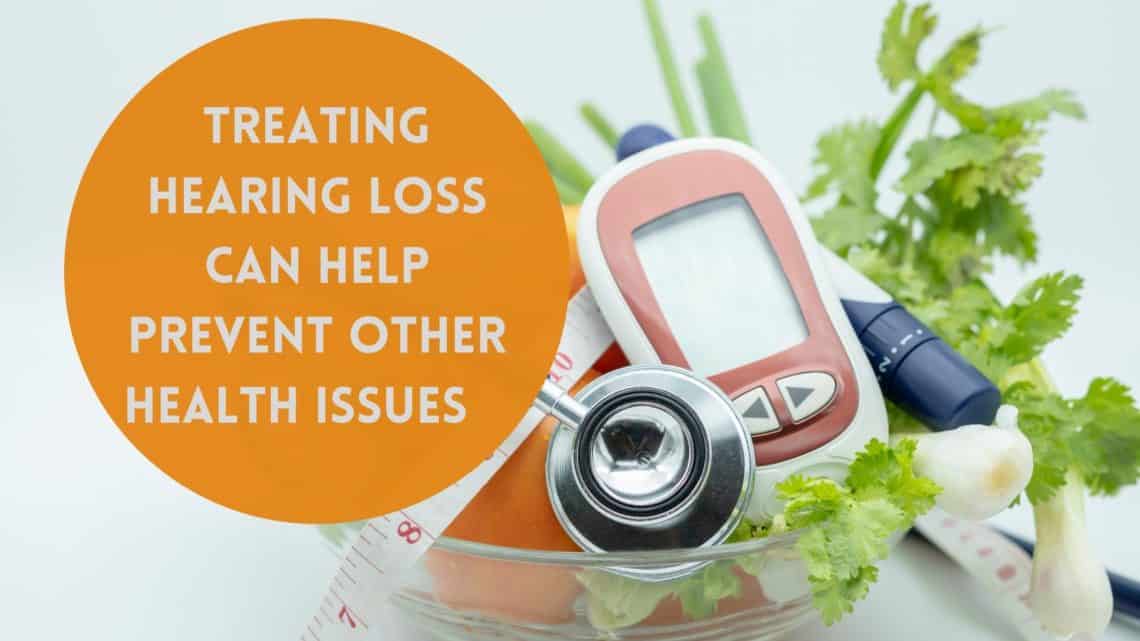Hearing loss is a common medical condition that people experience today. Half of adults over the age of 75 have impaired hearing. Untreated hearing loss reduces a person’s ability to hear and process sound which has a range of effects that impact daily life. In addition to straining communication, relationships, and social wellness; untreated hearing loss increases various health risks. Hearing loss is a chronic condition that is correlated with contributing to the development of other health issues. Treating hearing loss not only transforms hearing health, but is also an important preventive measure!
Hearing Loss Increases Health Risks
Extensive research highlights a link between hearing loss and other health issues. Various studies have revealed that hearing loss can significantly increase the risk of developing other health conditions including the following:
- Cognitive Decline. In a study published in 2019, researchers found that hearing loss can contribute to the development of cognitive decline. After collecting and analyzing data on hearing loss and cognitive function for 10,107 participants (ages 62 and older), researchers found that cognitive decline was:
- 30% higher among people with mild hearing loss
- 42% higher among people with moderate hearing loss
- 54% higher among people with severe hearing loss
Researchers suggest that hearing loss can cause the brain to experience cognitive overload and brain atrophy which result in reduced cognitive functioning.
- A2015 study found that participants with hearing loss were more than twice as likely to have moderate to severe depression. This study included data on hearing loss and the experience of depressive symptoms for 18,318 participants, ages 18 and older. Key findings included that the prevalence of moderate to severe depression was:
- 9% for individuals reporting excellent hearing
- 4% for people who reported a little to greater hearing loss
One of the most common effects of hearing loss is social withdrawal. This isolation means spending less time with others which can create distance in relationships with loved ones. In addition to experiencing strained communication, these effects can significantly contribute to depression.
- Accidental Injuries. People with untreated hearing loss also experience a higher risk of sustaining injuries from falls. A 2012 study found that people with mild hearing loss were 3 times more likely to have a history of falling. Impaired hearing that is left untreated reduces the capacity to hear and process sound which decreases spatial awareness. This affects one’s ability to hear warning signs in their environment (sirens, honks, voices) and to navigate public spaces with high awareness; increasing the risk of falling.
Treating hearing loss is not only important for hearing capacity but to also reduce these associated health risks.
How Hearing Aids Benefit Health
There are effective ways hearing loss is treated and treatment offers countless benefits that improve overall health. The most common treatment for hearing loss is hearing aids – medical devices that are designed to absorb, amplify, and process sound. Hearing aids provide ample support that maximizes hearing capacity, allowing people to hear and communicate more effectively. This enhances overall health and reduces the risk of developing associated health conditions by:
- Improving brain health. Research has shown that hearing aids improve cognitive functions. By helping the ears and brain process sound, hearing loss treatment provides support and prevents cognitive overload. This can delay or prevent the development of cognitive related conditions like dementia.
- Enriching social life. Hearing aids alleviate hearing loss symptoms and allow people to hear more clearly. This enables people to navigate the conversation and social spaces with greater ease. People are better able to hear, respond, and fully participate in conversations. This enriches social life and improves social connections.
- Increasing safety. Treating hearing loss often results in being able to hear sounds people haven’t heard in quite some time. Being able to hear more of what is going on in one’s environment increases spatial awareness and safety.
These benefits reduce the risk of experiencing cognitive decline, depression, accidental injuries, and other health concerns related to untreated hearing loss.
Treating Hearing Loss with Hearing Wellness Solutions
Treating hearing loss supports you actively participating in all aspects of daily life. You can easily prioritize your hearing health today by calling us at Hearing Wellness Solutions to schedule an appointment for a hearing test!


